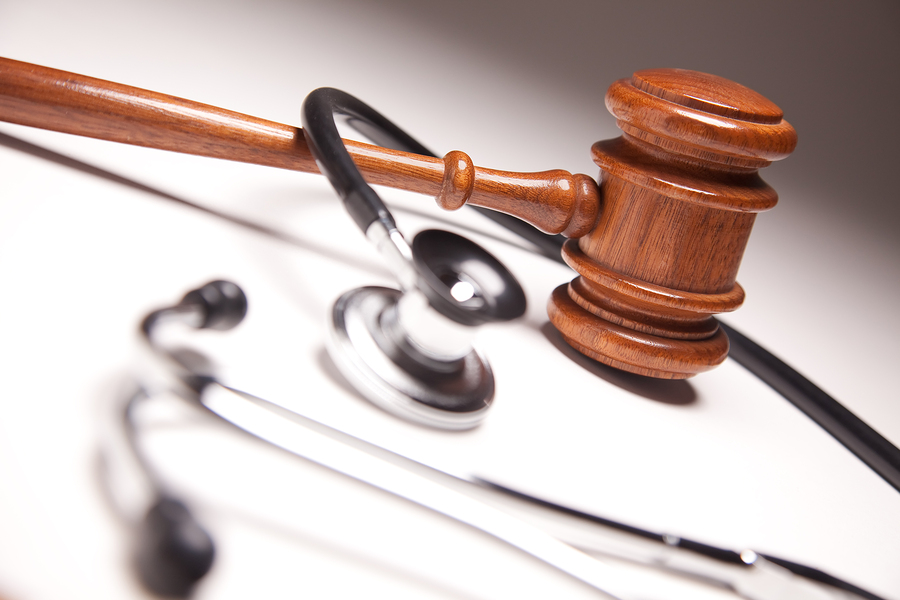What is a Medical Bankruptcy in New Jersey?
When struggling to pay medical bills in New Jersey, debtors can declare bankruptcy and possibly get such debts discharged. Either Chapter 13 or Chapter 7 bankruptcy can help you get a handle on medical debt in New Jersey.
There is no type of bankruptcy that is specifically designed to address medical debt in New Jersey. Instead, debtors will file a bankruptcy chapter, typically Chapter 7 or 13. To do this, you must file an initial bankruptcy petition with the court in New Jersey. Medical debt might then be eliminated, allowing you time to repay other creditors you might have. Debtors can lower the risk of losing certain assets during bankruptcy by using liquidation exemptions in New Jersey.
Call Young, Marr, Mallis & Associates at (609) 755-3115 to set up a free and confidential case review with our New Jersey bankruptcy lawyers today.
Is There a Specific Medical Bankruptcy in New Jersey?
While you can enter into bankruptcy as a way to address medical debt, there isn’t a specific medical bankruptcy you can file for. Debtors will typically either file Chapter 7 or Chapter 13, which can address all debt, not just debt associated with outstanding medical bills.
Bankruptcy chapters are not necessarily designed to help debtors address specific types of debt. Instead, debtors can file a standard bankruptcy, typically either Chapter 13 or Chapter 7. The chapter you file will depend on your financial status. Medical debtors with little income may have to file for Chapter 7. Medical debtors that pass a means test and have sufficient income to support a repayment plan can file for Chapter 13 in New Jersey.
Although the chapter you file won’t be catered to addressing medical debt, you can still repay medical creditors. If you file for Chapter 7, you might have to do this by liquidating certain assets.
That said, medical debt is considered a nonpriority unsecured debt. This means that if you petition for bankruptcy in New Jersey, medical debt might be discharged, or eliminated, leaving you with no responsibility to repay it. Suppose you have other debt in addition to medical debt. In that case, you can repay other creditors during bankruptcy after medical debt has been discharged. If medical debt is your only debt, you can address it fairly quickly by declaring bankruptcy in New Jersey.
What is the Process of Filing for Medical Bankruptcy in New Jersey?
If you are dealing with overwhelming medical debt that needs to be addressed, you can do so by declaring bankruptcy in New Jersey. Initiating the process is relatively simple, though debtors must be able to provide detailed information.
The first step in declaring bankruptcy is filing a petition with the court. Our Mount Holly, NJ bankruptcy lawyers will include information about your income, expenses, and savings in your initial petition. We will also include information about medical debt and your creditors. If there are other debts that need to be addressed, we will include information about those debts in your bankruptcy petition as well. If you are using liquidation exemptions, you must note such in your initial bankruptcy petition.
Judges typically order all parties to engage in alternative dispute resolution methods. During this time, debtors might negotiate with creditors in an attempt to resolve the matter without further court proceedings. Creditors might be unwilling to fully partake in negotiations, requiring a judge to step in.
If medical debt is dischargeable, it may be eliminated after you petition for bankruptcy in New Jersey. Assets will be chosen for liquidation if you have other outstanding debts or medical debt is not discharged. It is not uncommon for those trying to pay medical bills to have other debts. If you filed for Chapter 13, our attorneys will submit a repayment plan soon after you declare bankruptcy. Once the judge approves your repayment plan, you can begin making payments to creditors to address your debt in New Jersey.
Are There Risks Associated with Filing for Medical Bankruptcy in New Jersey?
There are few risks associated with filing for bankruptcy to handle medical debt in New Jersey because medical debt is typically dischargeable. If you are concerned about losing certain assets, you may be able to exempt them from liquidation in New Jersey.
The top risk debtors are concerned about regarding the prospect of declaring bankruptcy in New Jersey is potentially losing important assets, like a debtor’s home or car. Fortunately, New Jersey allows debtors to use federal liquidation exemptions, allowing debtors to retain a wide array of personal property when going through Chapter 7 liquidation bankruptcy.
Another concern of debtors is the impact bankruptcy can have on a person’s credit. A Chapter 7 bankruptcy may stay on your credit report for about ten years after filing. A Chapter 13 bankruptcy may stay on your creditor report for about seven years after filing. That said, declaring bankruptcy can help debtors avoid other things that can have an adverse effect on their credit, such as missing payments, allowing them the opportunity to intentionally build their credit back up over time.
Medical debt can begin to feel insurmountable almost immediately, especially if it is tied to a person’s credit card debt, which can accrue interest quickly. Credit card debt is also typically dischargeable in bankruptcy, making going through bankruptcy even more necessary for debtors in certain situations.
Typically, there are greater risks associated with not filing for bankruptcy if you have considerable medical debt than declaring bankruptcy and handling your debt in New Jersey. Debt in one area can lead to debt in another since it is common for debtors to miss mortgage or car payments in an attempt to meet others, like medical payments.
Eliminate Medical Debt in New Jersey Today
For a free case evaluation with Young, Marr, Mallis & Associates, call our New Brunswick, NJ bankruptcy lawyers today at (609) 755-3115.






























